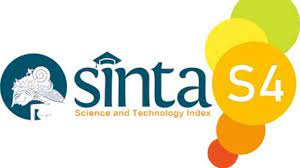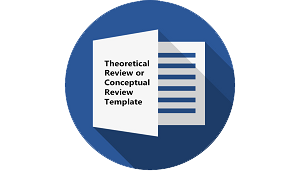A CRITICAL DISCOURSE ANALYSIS OF BTS’ SONG “ON†(SYSTEMIC FUNCTIONAL LINGUISTICS APPROACH)
DOI:
https://doi.org/10.30957/ijoltl.v7i3.618Keywords:
critical discourse analysis, song, systemic functional linguisticsAbstract
Song is a type of transactional discourse which contains a singer’s message or ideology to be delivered to their fans or general public about certain issues, either related to personal or social ones. The ideology and the relative power of a song can be analyzed through linguistic perspective using Critical Discourse Analysis (CDA) approach by investigating its discourse meaning and its relevance to the surrounding social and cultural context. This is a descriptive qualitative study which aims at revealing the ideology of acceptance, self-love and self-perseverance of the song ON by BTS through Halliday’s (2004) Systemic Functional Linguistics and Fairclough’s (1995) concept of CDA by analyzing the transitivity, mood types and metaphors. The followings are the results namely i) the transitivity comprises 46 material process, 8 mental process, 16 relational process, 3 behavioral process and 2 verbal process; 2) the mood system consists of 47 indicative declarative, 3 indicative interogative and 25 imperatives; and 3) there are 5 metaphors found in the song. In a nut shell, this song delivers an important message of accepting and loving their true selves, self-reliance and perseverance towards prejudice and bullying from others, as well as confidence towards any challenges ahead.
Downloads
References
Brackett, Crystal. 2018. The Dark Side of the K-Pop Industry and Idol Groups. Accessed from https://www.ranker.com/list/dark-facts-about-the-kpop-industry/crystal-brackett.
Brown, G. & Yule, G. 1983. Discourse Analysis. Cambridge: Cambridge University Press.
BTS ON (Official music video). 2020. https://www.youtube.com/watch?v=gwMa6gpoE9I
Campbel, Matthew & Kim, Sohee. 2019. The Dark Side of K-Pop: Assault, Prostitution, Suicide, and Spycams. Accessed from https://www.bloomberg.com/news/features/ 2019-11-06/k-pop-s-dark-side-assault-prostitution-suicide-and-spycams.
Crystal, D. 1987. The Cambridge Encyclopedia of Language. Cambridge: Cambridge University Press.
Fairclough, N. 1995. Critical Discourse Analysis: the critical study of language. London: Longman Group Limited.
Fauzan, U. 2013. “Analisis Wacana Kritis Model Fairclough.†Jurnal PENDIDIK Vol. 5, No. 2.
Halliday, M.A.K. & Mathiesen, Christian. 2004. An Introduction to Functional Grammar third edition. New York: Oxford University Press., Inc.
Herman, Tamar. 2020. BTS on New Album 'Map of the Soul: 7': 'It's Basically a Love Song For Our Career'. Accessed from https://www.billboard.com/articles/news/ international /8551687/bts-map-of-the-soul-7-interview.
Janks, Hillary. 2006. Critical Discourse Analysis as Research Tool. Discourse: Studies in the Cultural Politics and Education Vol. 13 no. 3. https://doi.org/10.1080/0159630970180302.
Jorgensen, M. W. & Phillips, L. J. 2002. Discourse Analysis as Theory and Method. London: SAGE Publication.
Kwon, Eun Jee. 2017. Korean Wave: Discourse Analysis Popular Culture in US and UK Digital Newspapers (a thesis document). Accessed from https://theses.ubn.ru.nl/bitstream/handle/123456789/4898/ Kwon%2C_E.J._1 .pdf?sequence=1.
Moleong, L.J. 2007. Metodologi Penelitian Kualitatif edisi revisi. Bandung: PT Remaja Rosdakarya.
Merita, R. & Sumarlam. 2018. The Insinuation against Power through a Song “2019 Ganti Presidenâ€: Critical Discourse Analysis. Advances in Social Science, Education and Humanities Research vol. 280 pp. 307-317.
Messerlin, P. & Shin, W. 2017. “The Success of K-Pop: How Big and Why so Fast?†in Asian Journal of Social Science, January, pp. 1 – 23.
Putri, Inike Tesiana & Triyono, Sulis. 2012. “We Shall Overcome†a Humanity Song by Roger Waters: Critical Discourse Analysis. Humaniora Vol. 30 pp. 119 – 127.
Roll, Martin. 2018. Korean Wave (Hallyu) – The Rise of Korea’s Cultural Economy & Pop Culture. https://martinroll.com/resources/articles/asia/korean-wave-hallyu-the-rise-of-koreas-cultural-economy-pop-culture/.
Setiowati, E. & Wahyuningtyas, B.P. 2011. Marjinalisasi Perempuan Pertama melalui Lagu: suatu analisis wacana kritis terhadap lagu “Jadikan Aku yang Kedua.†Humaniora Vol. 2, No. 2 (October), pp. 1006 – 1024.
Setyono & Wahyuni, Sri. 2013. Critical Discourse Analysis on the Javanese Song ‘Ilir Ilir’. Arab World English Journal pp 78 – 91.
Sihombing, L. H. 2018. Pengaruh Kpop bagi Penggemarnya: sebuah analisis kajian blog. Jurnal Makna Vol. 3 No. 1 (March) pp. 55 – 76.
Sumarlam, et. al. 2009. Analisis Wacana. Surakarta: Pustaka Cakra.
Wibowo, S. 2018. Kritik Sosial dalam Lirik Lagu Band Captain Jack: analisis wacana Norman Fairclough. Unpublished undergraduate thesis. Universitas Islam Sultan Kalijaga Yogyakarta.
World Population Review. 2020. Suicide Rate by Country 2020. https://worldpopulationreview.com
Downloads
Published
How to Cite
Issue
Section
License
Authors who publish with this journal agree to the following terms:
- Authors retain copyright and grant the journal right of first publication with the work simultaneously licensed under a Creative Commons Attribution-ShareAlike 4.0 International License that allows others to share the work with an acknowledgement of the work's authorship and initial publication in this journal.
- Authors are able to enter into separate, additional contractual arrangements for the non-exclusive distribution of the journal's published version of the work (e.g., post it to an institutional repository or publish it in a book), with an acknowledgement of its initial publication in this journal.
- Authors are permitted and encouraged to post their work online (e.g., in institutional repositories or on their website) prior to and during the submission process, as it can lead to productive exchanges, as well as earlier and greater citation of published work (See The Effect of Open Access).












